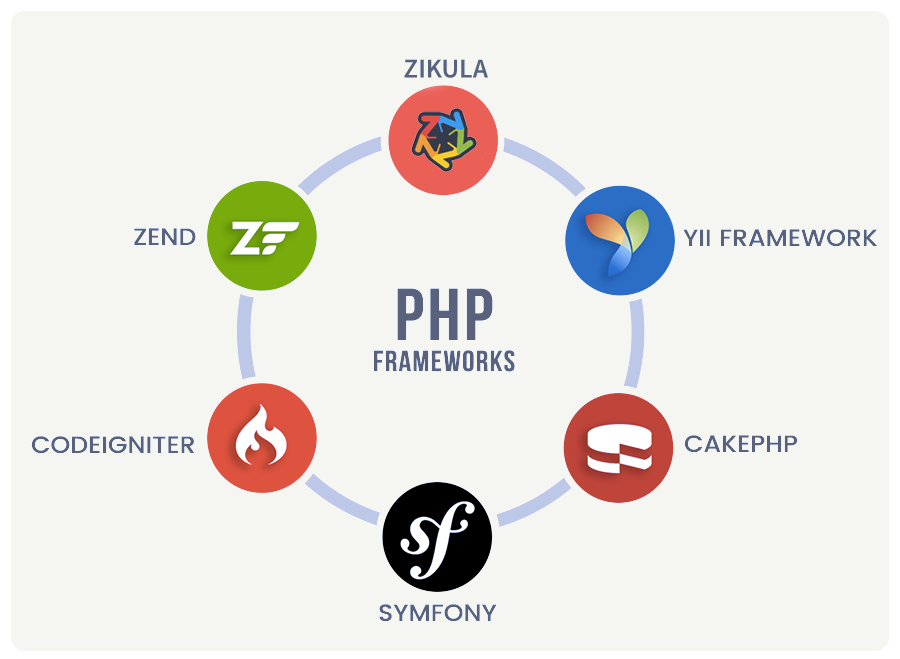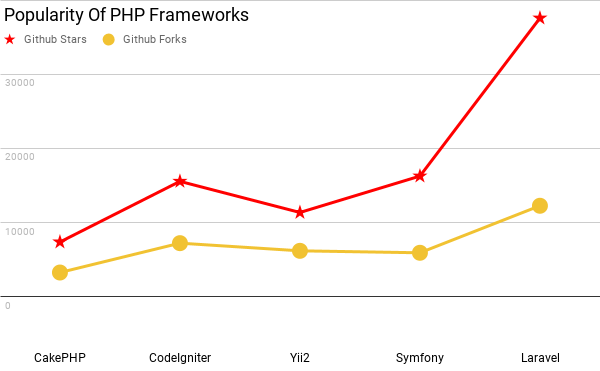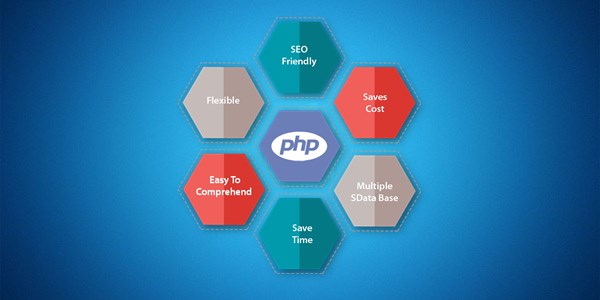PHP stands for “Hypertext Pre Processor”, though it originally stood for “Personal Home Page”. It is a scripting language which is server side and an open source. Its extreme popularity is evidenced by the fact that over 80% websites have used PHP as of October 2018. But why use PHP at all? This is because a PHP framework offers the most convenient structure for a logical and streamlined development. They can work at extreme speeds. Businesses are able to meet their necessary performance using PHP. The usage in 2019 was close to that in 2018, and there is no doubt that, barring a brand new framework which betters PHP, this will be the framework of choice in the years to come. . In this review, we will study popular PHP frameworks, and find out why PHP is so popular with developers.
PHP Evolution
PHP actually came after a product named PHP/FI. When Rasmus Lerdorf first created PHP, it was a simple set of binaries of the CGI (Common Gateway Interface) mold. The language then used was C programming language. Rasmus used PHP originally to track visits to his resume. It was then rewritten by Rasmus to create a larger implementation. 1996 saw a second version, PHP/Fi 2.0, which was able to support Windows as well as C, Pert, UNIX, and POSIX. PHP 3.0 came in 1998, which was compliant with Windows NT, as well as Macintosh. Then it was PHP 4.0, based on the “Zend Engine”, HTTP sessions, output buffering, secure user input handling, and so on. Finally PHP 5.0 was released in July, 2004, and is mainly driven by the “Zend Engine 2.0”.
Popular PHP Frameworks

Some of the most well known popular PHP frameworks now follows:
- ZEND: ZEND is not ideal for Rapid Application Development, but it is superb for enterprise applications. It has vast components for Validation, Feeds and Forms.
- FUELPHP: It has Restful APIS Building, URL Routing and Authentication Packages (Caching is optional). It is modular with integrated ORM. Reviews of its newer version reveals that it can be installed using Composer and one installation will be able to support multiple applications. It will be fully object oriented.
- PHALCON: This is a lightning fast PHP Framework Application. It is most unusual in that it is based as a C-extension. It is Auto Loading, has excellent security features built in. it is not as Open Source as Laravel and it does not work with HHVM. It has lots of documentation and is very Developer friendly.
- SYMPHONY: This is a high performance framework, stable and well documented. It is also well maintained and supported. But it has a steep learning curve and it does not support MVC. It has Byte Code Caching.
- LARAVEL: This is the most widely known and used PHP frameworks of all. But LARAVEL does not work on Shared Hosting plans. It can organize files and code, and has rapid application development. The Architecture is NVC and PHP 7.1.1. Regarding unit testing it is HHVM on FAST. It has the best documentation of any such application, with a high abstraction level. The over powerful encryption packages, Payment integration with STRIPE (ORM) and the out-of-the-box function is very strong. Overloading capabilities using dynamic methods are available.
- CODEIGNITER: Universally known as friendly to beginners, CODEIGNITER is particularly helpful for developers who are in a hurry. Normal Web Hosting Services can be used and standard Data Bases such as MySQL, can easily be adapted. All non-MVC frameworks can be left far behind. CODEIGNITER provides good documentation and LTS (Long Term Support). CODEIGNITER does not lend itself easily towards Unit Testing, and has only a few Libraries in-built into the framework. But it is light (it is only 2mb in size) , easy to setup and extremely rapid in action.
- CAKEPHP: CAKEPHP supports PHP 5.5+ with its modern framework. It uses a Scaffholding system, which allows very fast builds. It has an MIT license for commercial Web applications. But it is not as good for constructing Restful APIS as LARAVEL and its sister software. It achieves Data Base access, Caching, Validation and Authentication, with ease, as these features are all built-in. It has extensive safe-keeping tools such as SQL Injection Prevention, .CSRF, Cross Site, Scripting Prevention etc.
The Measure of PHP’s Popularity Scale

Developers prefer PHP frameworks because they are structured and efficient, as well as fast track. PHP is by far the acknowledged leader of Frameworks for Developers around the world. PHP-related projects abound, such as PEAR, PECL, and it has an underlying network infrastructure of well over one hundred individual web servers on six of the seven continents of the world. A typical estimate of PHP based Domains around the World would number over hundreds of millions. PHP is popular today, and will be tomorrow.
